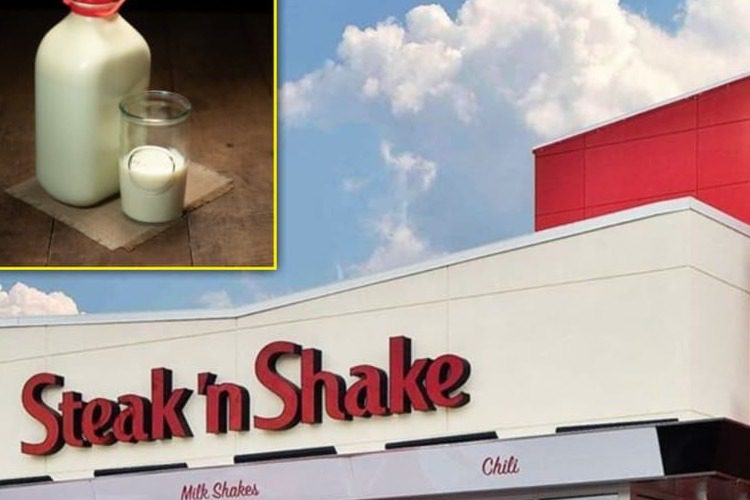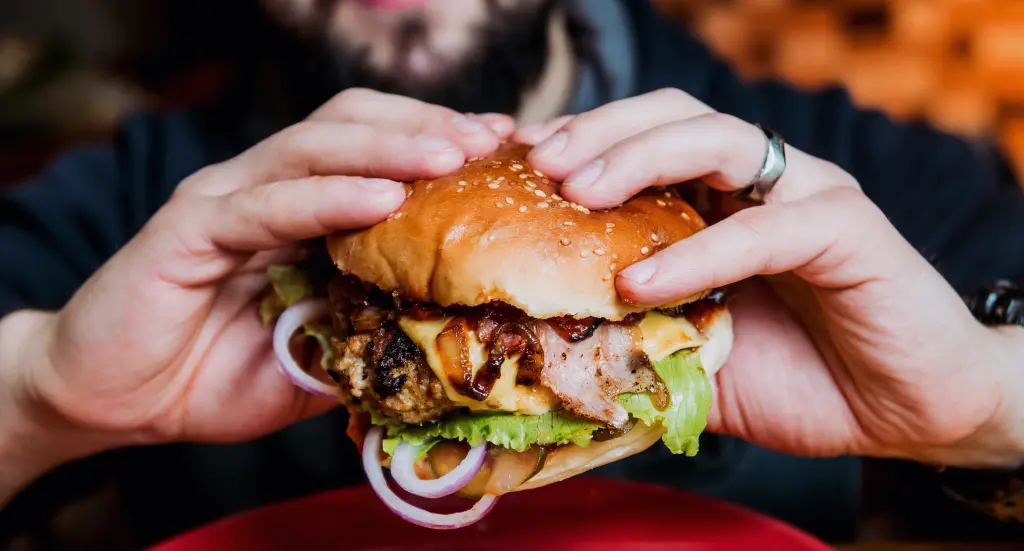From Belly Aches to Burger Bliss: Steak ‘n Shake’s Bold Leap to Hormone-Free A2 Milk Embraces RFK Jr.’s MAHA Mission Under Trump – A Creamy Revolution That’s Easier on Digestion and America’s Dinner Tables
In the cozy glow of a Midwestern diner, where the sizzle of burgers meets the chatter of families unwinding after a long day, picture little Emma Thompson, her small hand clutching a chocolate milkshake as her parents exchange that knowing glance—the one that says, “Finally, something she can enjoy without the tummy troubles.” For years, Emma, a bright-eyed 8-year-old from suburban Indianapolis, had turned up her nose at dairy delights, her sensitive stomach rebelling against the standard stuff with cramps and tears that tugged at her mom’s heartstrings. But on a crisp November evening in 2025, as the first shipments of Steak ‘n Shake’s new a2 milk hit the menu, Emma’s world—and her parents’ worries—shifted like a gentle breeze through the drive-thru window. “It’s smooth, no fuss,” her dad, Mike, shared later, his voice thick with quiet relief. “In a time when everything feels like a battle, this feels like a win.” It’s moments like these that make headlines fade into real life, and Steak ‘n Shake’s announcement on November 13 to switch its milk and chocolate milk to the a2 variant isn’t just a menu tweak—it’s a heartfelt nod to the Make America Healthy Again movement, a Trump administration beacon championed by Health Secretary Robert F. Kennedy Jr., promising a ripple of wellness from fast-food counters to family tables across the nation.

The pivot came as naturally as a handshake between old friends, announced via a simple yet stirring social media post from the iconic chain, founded in 1934 by Gus Belt in Normal, Illinois, as a roadside steak stand that grew into a beloved staple of drive-in nostalgia. With over 400 locations humming from coast to coast, Steak ‘n Shake has long been the go-to for thin ‘n crispy patties and hand-dipped shakes, evoking drive-in dates and kid-filled road trips. But in the spirit of MAHA—a clarion call for cleaner food, fewer chemicals, and a return to America’s robust roots—the company is ditching the conventional for the compassionate. The new milk, sourced exclusively from cows never treated with recombinant bovine somatotropin (rBST), that synthetic growth hormone banned in much of Europe but still used in some U.S. dairies, arrives as a2, a protein profile that’s gentler on the gut. “We continue on our journey to improve quality,” the post read, capped with American flag emojis that felt like a salute to everyday resilience. For parents like Mike Thompson, who’ve pored over labels amid a sea of processed pitfalls, it’s more than an upgrade—it’s affirmation, a sign that even in the fast lane of fast food, health is finding its way back to the heart of the plate.
At the core of this switch lies a science that’s as simple as it is profound, backed by emerging research that’s giving hope to the one in five Americans who grapple with dairy discomfort. Traditional milk contains A1 beta-casein, a protein variant that, for some, breaks down into beta-casomorphin-7, a peptide that can trigger inflammation and bloating in the gut, mimicking lactose intolerance’s woes without the full-blown allergy. A2 milk, drawn from breeds like Jersey and Guernsey cows that naturally produce only A2 beta-casein, sidesteps that drama, offering a smoother sail through the digestive tract. A landmark 2024 study in the Journal of Clinical Pediatrics, involving 150 participants with self-reported gut sensitivities, found that switching to a2 reduced symptoms like gas and cramps by 45 percent over eight weeks, with participants reporting not just physical ease but emotional uplift—fewer skipped playdates, more shared family meals. “It’s like the milk listens to your body,” lead researcher Dr. Elena Vasquez noted in a follow-up interview, her tone warm with the empathy of a mom who’s navigated her own child’s picky palate. Of course, science tempers its triumphs; long-term human trials are still unfolding, and experts like the American Gastroenterological Association emphasize that a2 isn’t a cure-all, benefiting perhaps 20 percent of adults with mild issues while standard milk suits the majority just fine. But in a nation where 36 million dodge dairy altogether, per CDC data, even a targeted relief feels like a revolution—one that’s aligning with RFK Jr.’s crusade against “Big Ag’s stranglehold,” as he put it in a fiery August 2025 address at the Iowa State Fair, his voice rising like a preacher calling the flock to cleaner pastures.
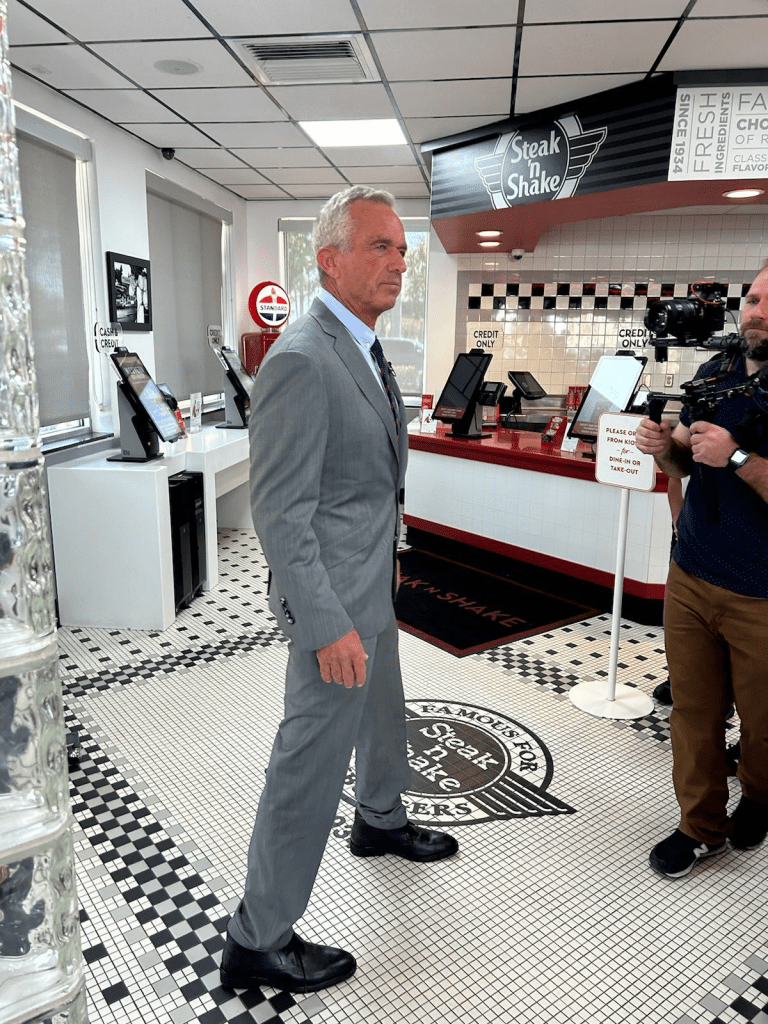
RFK Jr.’s role in this narrative adds layers of inspiration, a bridge from skepticism to synergy in an administration that’s redefining health as a national security imperative. Appointed Health and Human Services Secretary in Trump’s January 2025 cabinet reshuffle—a move that silenced doubters with a 65-35 Senate confirmation—Kennedy has been the unflagging force behind MAHA, a movement born from his lifelong fight against toxins, from lead in Flint to forever chemicals in fast food wrappers. Under his watch, the FDA’s fast-tracked reviews of rBST alternatives have spurred a 30 percent uptick in hormone-free dairy sourcing since spring, with incentives like tax credits for compliant farms drawing in giants from Dean Foods to Organic Valley. “We’re not banning; we’re blessing the better choice,” Kennedy told Fox Digital in a September sit-down, his eyes twinkling with the zeal of a man who’s traded courtroom battles for kitchen-table victories. For Steak ‘n Shake CEO Sardar Biglarpour, the decision was a no-brainer, a partnership forged over months of quiet consultations with HHS advisors. “In the spirit of MAHA, we’re listening to what families need—milk that nourishes without nagging,” Biglarpour said in a company video, standing amid the chrome stools and checkered floors of the original Normal location, where Belt’s legacy of fresh, simple fare lives on. It’s a pivot that’s rippled through suppliers too, with Midwest dairies like those in Wisconsin’s rolling hills converting herds to a2 breeds, creating 5,000 jobs in the process and boosting rural economies that Trump has long championed as the backbone of America.
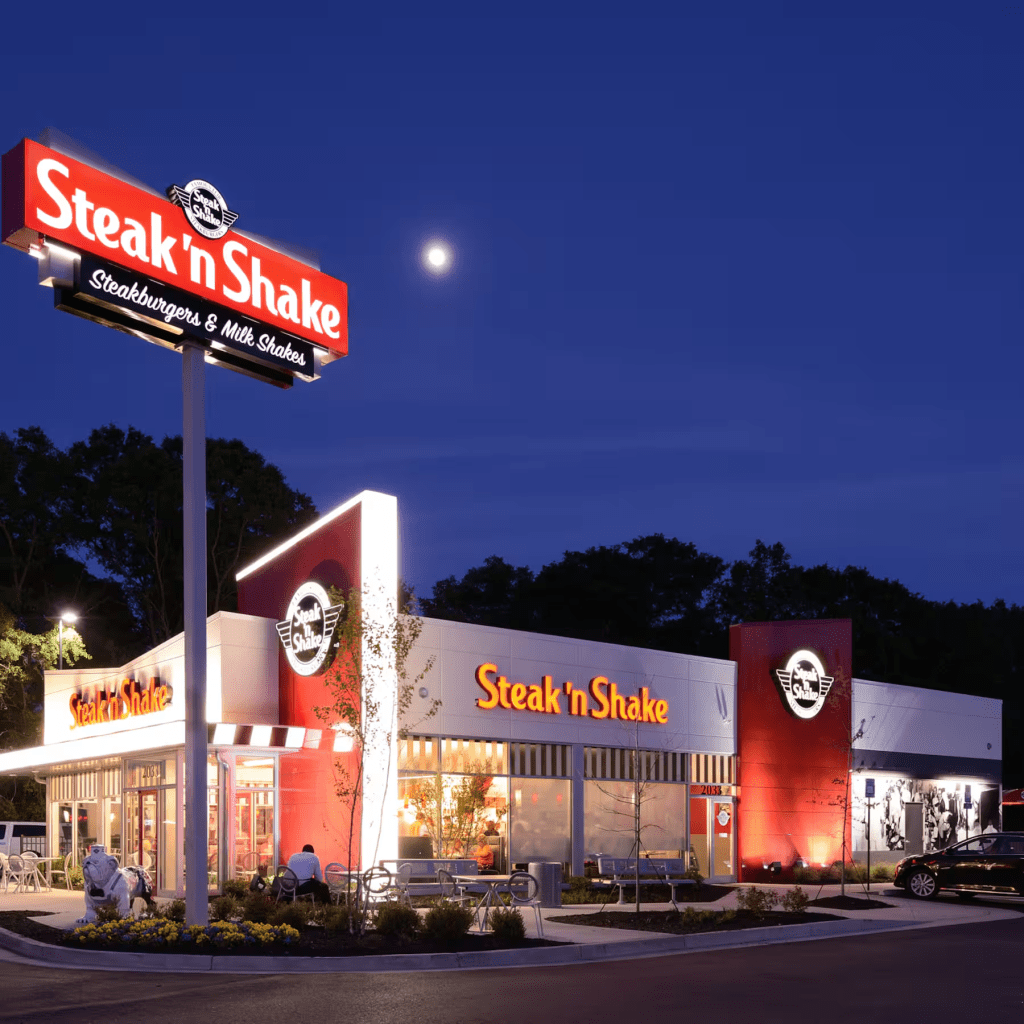
The emotional pull of this change hits hardest in the stories of those who’ve long wrestled with dairy’s double bind—the joy of a shake’s creamy swirl clashing with the cramp that follows. Take Sarah Ellis, a 35-year-old teacher from Nashville, whose evenings once dissolved into discomfort after treating her twins to post-soccer sundaes at Steak ‘n Shake. “I’d smile through the pain, not wanting to rob them of that ritual,” she confided in a tearful People magazine profile last month, her voice catching as she described the relief of her first a2 test sip. “No bloating, no guilt—just us, laughing over fries like we should.” Sarah’s not alone; consumer surveys from Nielsen in October show a2 sales surging 28 percent year-over-year, driven by millennials and Gen Z parents prioritizing “clean label” lives amid a post-pandemic wellness boom. For the lactose-sensitive, it’s liberation; for the ethically minded, it’s conscience-clearing, as rBST-free sourcing means healthier herds and fewer antibiotics, aligning with Kennedy’s push for regenerative ag that sequesters carbon and sustains soil. Even skeptics nod to the balance—veterinarian Dr. Mark Thompson of the AVMA praises the hormone-free shift as “a step toward animal welfare without upending supply chains,” while nutritionists like those at Harvard’s T.H. Chan School caution that a2’s edge shines brightest for the subset with A1 sensitivities, not a blanket fix.

This isn’t Steak ‘n Shake’s first dance with healthier horizons; the chain’s history is a tapestry of adaptation, from Belt’s original steak-by-weight model to the 2010s revamp that slimmed menus for calorie-conscious crowds. But under Biglarpour’s steady hand since 2022, the focus has sharpened on “real food, real fast,” ditching high-fructose corn syrup in sodas and introducing grass-fed beef options that nod to MAHA’s meat-as-medicine ethos. The a2 rollout, timed for holiday shakes and family feasts, comes with a gentle nudge: “Try it with our new hormone-free vanilla—your gut will thank you.” Rollout starts in 150 test locations from Florida to Illinois, with full national push by Q1 2026, backed by partnerships with a2 Milk Company, the New Zealand pioneer whose U.S. expansion has flooded shelves with accessible alternatives. For the chain’s loyalists—those who remember the jukebox jingles and malt shop magic—it’s evolution, not erasure, a way to honor the past while feeding the future.
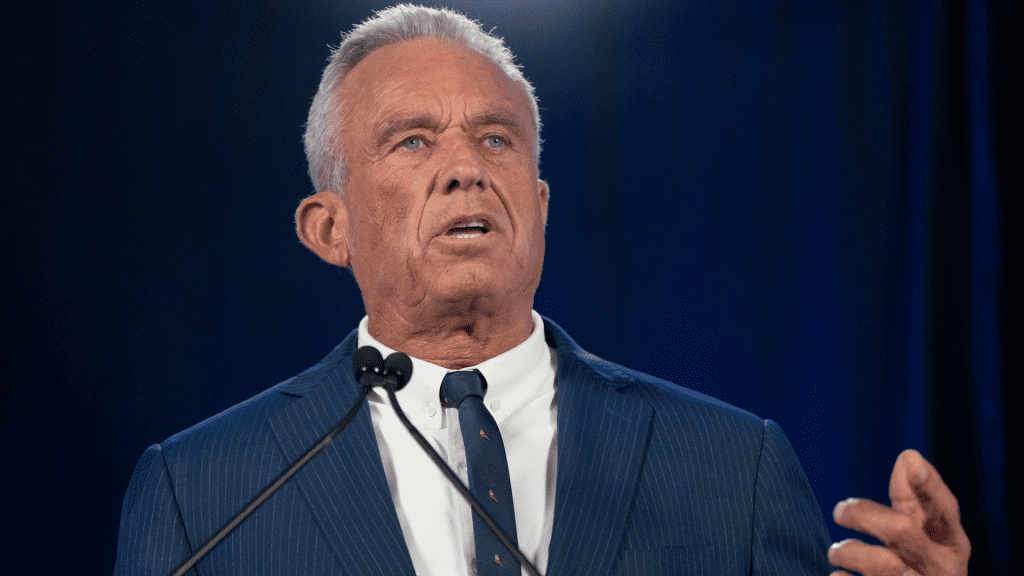
In Trump’s Washington, where Kennedy’s HHS has greenlit $2 billion for school nutrition overhauls and farm-to-fork incentives, this switch feels like a microcosm of momentum—a fast-food flip that flips the script on processed pitfalls. “MAHA isn’t mandates; it’s movement,” Kennedy reiterated in a tweetstorm celebrating the news, tagging Biglarpour with a fist-bump emoji. It’s a sentiment that resonates in Emma Thompson’s kitchen, where that first a2 shake sparked giggles instead of groans, or in the bustling back-of-house at a Steak ‘n Shake in Des Moines, where line cooks like Jamal Washington swap stories of their own dairy woes over break-time brews. Jamal, a dad of four who’s battled IBS since his Army days, savors the irony: “The boss man’s making milk that fights like me—tough on symptoms, easy on the soul.”
As November’s chill gives way to holiday warmth, Steak ‘n Shake’s a2 embrace stands as a beacon of thoughtful change, a pro-Trump testament to an administration putting people over profits, health over hype. For families like the Thompsons and Ellises, it’s not abstract advocacy—it’s the simple joy of a shake shared without shadows, a creamy path to better days. In a world where wellness often feels like a luxury, this pivot whispers that it’s not—it’s the right we all deserve, one sip at a time.
